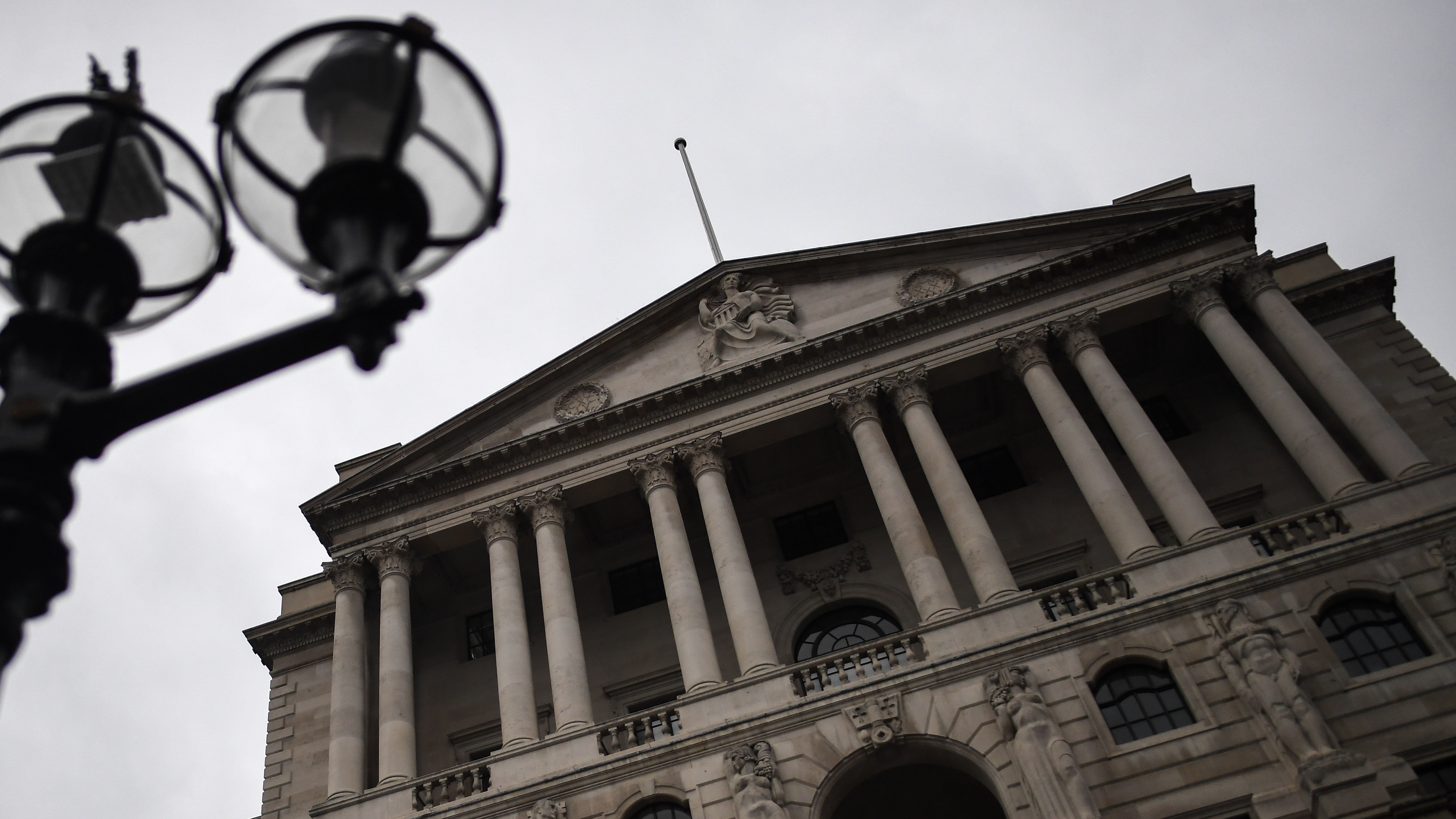Pensions: One in eight stop work before retirement due to illness
TUC says 12% of workers are forced to quit before pension age because of ill health or disability

A free daily email with the biggest news stories of the day – and the best features from TheWeek.com
You are now subscribed
Your newsletter sign-up was successful
One in eight British workers is forced to leave work before retirement age because of ill health, according to the TUC, which says its analysis means the government should not yet raise the state pension age.
According to the trade union body, almost half a million Britons with less than five years to go before retirement have had to stop working due to medical reasons.
People doing manual work were twice as likely as managers or professionals to have to leave work because of sickness or disability.
The Week
Escape your echo chamber. Get the facts behind the news, plus analysis from multiple perspectives.

Sign up for The Week's Free Newsletters
From our morning news briefing to a weekly Good News Newsletter, get the best of The Week delivered directly to your inbox.
From our morning news briefing to a weekly Good News Newsletter, get the best of The Week delivered directly to your inbox.
There is a significant north/south divide to the problem, says the TUC. In south-west England, one in 13 blames illness for their leaving work. In the north of England, Scotland and Wales it was one in seven – and in Northern Ireland, one in four.
Frances O'Grady, secretary-general of the TUC, said: "These figures show that we must hold off on any further rises in the pension age until we have worked out how to support the one in eight workers who are too ill to work before they even get to state pension age.
"People should be able to retire in dignity with a decent pension when the time is right.
"Older workers have a crucial role to play in the labour market but we can't expect the sick to wait longer to get a pension when they may need financial support more than ever."
A free daily email with the biggest news stories of the day – and the best features from TheWeek.com
A spokesman for the Department for Work and Pensions said: "We regularly review the state pension age to make sure the system is fair, sustainable and affordable for the taxpayer.
"Our welfare system already provides a range of support for people of all ages who are unable to work due to illness or disability."
The TUC has compiled the figures in response to a government announcement in March that it was commissioning an independent review into the state pension age, says the BBC.
The review is being led by the former CBI chief John Cridland and will report its findings in May of next year. The state pension age is already set to rise to 65 for men and women by November 2018 and to 67 by 2028.
Pensions black hole expands after interest rate cut
01 September
The Bank of England's decision to lower interest rates in the wake of the Brexit votehas given the UK's pension deficit the sharpest increase in a long series of recent rises.
The country now has a total pension deficit of £710bn, which is the biggest it has ever been, according to the Daily Telegraph. The deficit has risen by £100bn in the last month alone – and has almost doubled over the past 18 months.
The cut in interest rates is behind the increasing gap between the money British firms have in reserve to pay pensions to their employees and the potential cost of paying those pensions.
Simply put, there are two types of pension fund: defined benefit or defined contribution. Defined benefit pensions guarantee former employees a specific amount each month, usually based on their salary on retirement.
The value of a company's pension fund may go up or down as it is invested – but, with a defined benefit scheme, the firm will still have to pay the same amount to employees. So the deficit will increase or decrease as the market fluctuates.
Last month, the Bank of England cut official interest rates to a new record low of 0.25 per cent. This has particularly hit defined benefit pension schemes because unlike other types of pension they tend to be cautiously managed.
Fund managers looking after defined benefit schemes make investments that are lower-risk and therefore take longer to produce returns. These investments have been among the first to suffer after interest rates were cut.
As a result, says the Telegraph, "companies are faced with the choice between pumping more money into their pension funds, or pushing the funds to invest in riskier assets in the hope of earning bigger returns and closing the gap".
Tom McPhail of Hargreaves Lansdown told the newspaper: "Current monetary policy may have kept the economy going but it is killing pension schemes, with disastrous consequences both for any employers sponsoring a final salary scheme and for any individuals looking to buy an annuity."
One UK firm, plastics supplier Carclo, has just announced that falling yields from bonds have pushed up its pension fund deficit to such an extent it will not be able to pay shareholders the dividend it promised in June, after using the cash to plug the hole instead.
-
 Film reviews: ‘Wuthering Heights,’ ‘Good Luck, Have Fun, Don’t Die,’ and ‘Sirat’
Film reviews: ‘Wuthering Heights,’ ‘Good Luck, Have Fun, Don’t Die,’ and ‘Sirat’Feature An inconvenient love torments a would-be couple, a gonzo time traveler seeks to save humanity from AI, and a father’s desperate search goes deeply sideways
-
 Political cartoons for February 16
Political cartoons for February 16Cartoons Monday’s political cartoons include President's Day, a valentine from the Epstein files, and more
-
 Regent Hong Kong: a tranquil haven with a prime waterfront spot
Regent Hong Kong: a tranquil haven with a prime waterfront spotThe Week Recommends The trendy hotel recently underwent an extensive two-year revamp
-
 Six ways to boost your finances in 2026
Six ways to boost your finances in 2026The Explainer It’s not too late to make a new year’s resolution to finally get organised money-wise
-
 The financial impact of returning to work in later life – should you 'unretire'?
The financial impact of returning to work in later life – should you 'unretire'?The Explainer Many people return to the workplace after retirement age, but what could it mean for your finances?
-
 State pension underpayments: are you getting the right amount?
State pension underpayments: are you getting the right amount?feature Hundreds of thousands of women may have received less than they were owed
-
 Early retirement: what is the ‘FIRE’ movement?
Early retirement: what is the ‘FIRE’ movement?feature Younger workers are aiming to quit the workforce early through extreme saving and investment
-
 How women can bridge the gender pension gap
How women can bridge the gender pension gapIn Depth New figures have shown the extent of the problem for women in retirement years
-
 How to plug the pension gap by buying National Insurance credits
How to plug the pension gap by buying National Insurance creditsfeature A temporary change in the state pension offers a ‘golden opportunity’
-
 Are UK pensions safe?
Are UK pensions safe?Today's Big Question Bank of England governor says its debt market support must end – but the multi-billion-pound scheme could be extended
-
 When will paper £20 and £50 notes expire?
When will paper £20 and £50 notes expire?Business Briefing Old notes will soon be taken out of circulation by the Bank of England